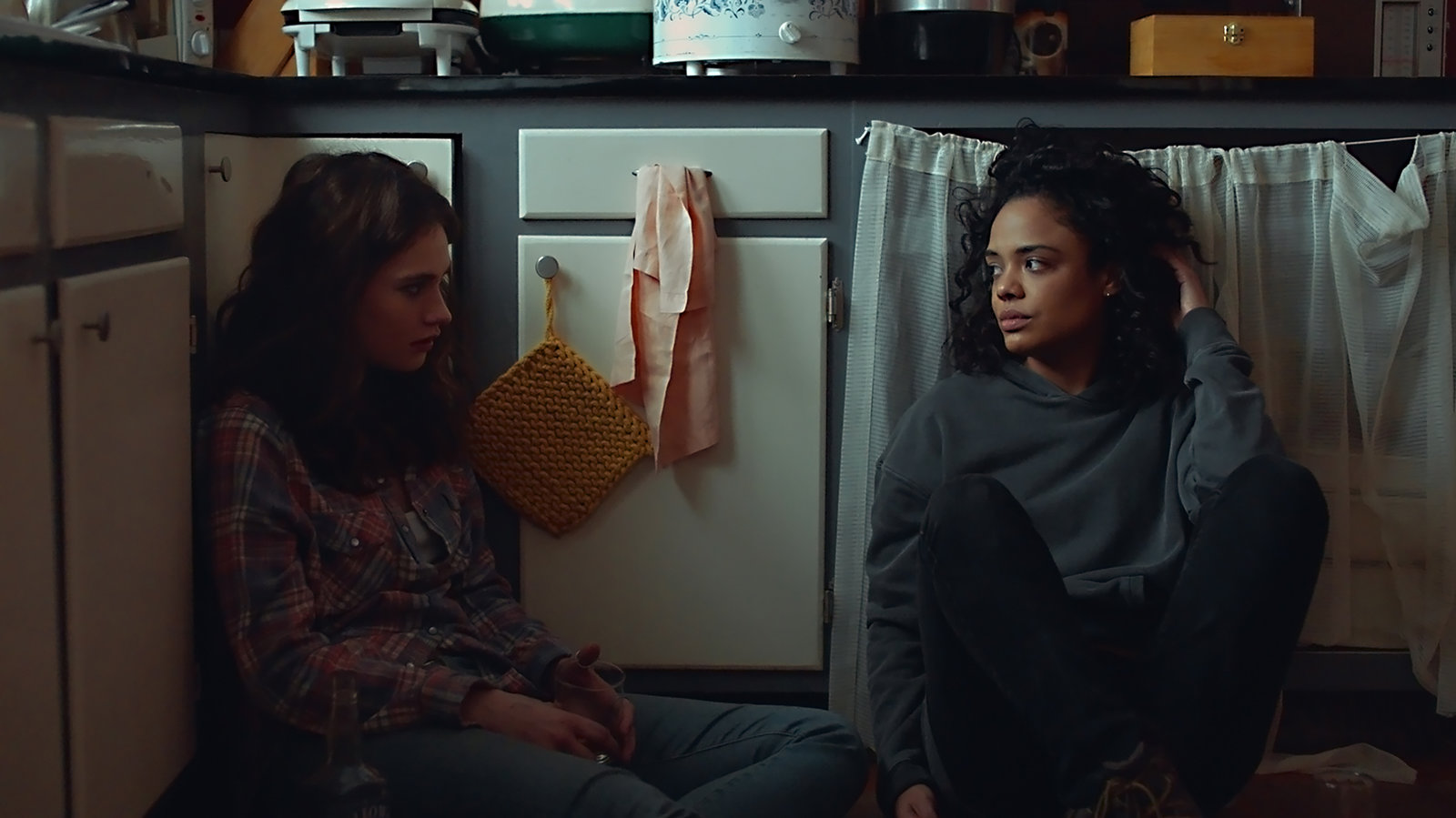
When one brings up the word “survival” in cinematic terms, usually some would think adventure stories in foreign environments like tropical islands, forests or jungles. Others would think of contained thrillers, where stories would be set in one small setting like a hostage situation in a building ala Die Hard, Under Siege or Speed.
But in independent cinema, the word “survival” could just as easily apply to stories involving social commentary and the human condition — along the lines of films like Leave No Trace and Winter’s Bone. Case in point, Nia DaCosta‘s Little Woods.
This is DaCosta’s feature directorial debut, and it has talented actors Tessa Thompson and Lily James as its leads. It’s been garnering critical acclaim ever since its premiere at Tribeca Film Festival last year, but with that much buzz going on, will the film live up to its sterling reputation? Or will it get lost in the woods due to the over inflated hype?
Thompson stars as Oleander “Ollie” Hale, a resilient yet world-weary woman who is on probation after being caught illegally crossing the border between North Dakota and Canada. She is determined to reinvent her life and with 8 days left on probation she has applied to find work in Spokane, Washington — thanks to the encouragement from her parole officer (Lance Reddick).
Numerous opportunities to go back to her old way of life, including selling prescription medicine illegally and doing more work at the border, keep presenting themselves, though Ollie scrapes by doing odd jobs for the construction workers who work nearby.
James stars as Deb, Ollie’s sister, a struggling, impulsive single mother who is intentionally ignorant of the obstacles in her impoverished life. She lives with her son Johnny in an illegally parked trailer and has recently discovered that she is pregnant, leading her to ask Ollie for her help. Due to extraneous circumstances with both her sister’s livelihood and her chance for a new life on the line, Ollie has no choice but to get back in the game of drug trading.
As of today, director DaCosta is slated to direct the remakes of both the horror film Candyman and the thriller Sleeping with the Enemy, and after viewing her feature directorial debut, it’s not hard to see why. Little Woods is a compelling survival story thanks to the remarkably assured direction by DaCosta and great performances by Thompson and James.
The verisimilitude in DaCosta’s storytelling (which bears similarities to the opioid epidemic of 2018) keeps the film grounded and believable. Allusions to U.S public policy are peppered throughout the film, hinting that the weather never rains, but pours – it is calculated that being pregnant will cost one $8000, making Deb speak out that it is easier to live in Canada. The difficult topic of abortion is also dealt with in a sensitive manner, with no hint of condemnation or judgment, as it is stated implicitly as a headstrong character choice.
The cinematography by Matt Mitchell conveys the grittiness of North Dakota as well as the exhausted mindsets of the characters so vividly and succinctly, and scenes where Thompson or James are resting looks like they are freezing into their surroundings.
The assured control from DaCosta also applies to the self-penned script. Exposition is kept to a pleasing minimum, the inner life of characters are conveyed through concise visual storytelling – the camera follows behind Ollie as she does her work rounds, staying close to her, lending a sense of claustrophobia of her life closing down on her. Even the very first shot hints the story and the arc of the characters in a pithy manner.
The filmmaking is never showy nor self-conscious as the drama is understated as well as understood. There are no emotionally cheap storytelling tropes like rape or sudden bouts of violence, even during scenes of impending threat. During a fiery argument between Ollie and Deb that features lines of dialogue “You don’t hope! You do!”, interactions like that still ring true and real, however contrived they may sound.
The performances by Thompson and James are fantastic. Thompson manages to be convincingly world-weary, autonomous and increasingly sorrowful all at once. Whether her character starts a bar brawl or when she sits at the dinner table overhearing her sister playing with her son, Thompson makes the bleak story worth following.
James doesn’t have much characterization to work with as Thompson, but she embodies the impulsive, reckless and blissfully ignorant character of Deb with more than enough humanity that one can empathize with her decisions and her actions. In one of the last scenes of the film, James manages to convey desperation, dishonesty and the same resilience Ollie has all in a single look, and it is a great performance.
The bond between Ollie and Deb is combative, scrappy, unruly and yet absolutely genuine, thanks to the chemistry between Thompson and James and the withholding of overt explanation on DaCosta’s part.
Overall, Little Woods is a film that more people need to see, as it is not only a compelling survival drama, but an enlightening examination of a slice of Americana, an involving crime western and a touching look at a strong sisterly bond. Highly recommended.
![]()
![]()
![]()
![]()
![]()
FOUR STARS (OUT OF FIVE)
Little Woods will be showing in selected cinemas from today.
